Update Member Custom Attributes
Member attributes are useful in delivering personalized experiences. These attributes can store custom details about each member, which can be used to show specific offers to them. When using the attributes to personalize the offers, it is important to ensure that the attributes are updated so that they reflect the correct member profiles at any given point in time.
Note: To use attributes for personalization, you first need to define the attributes for your program. For assistance in creating the custom attributes, contact your account manager at [email protected]. Visit here for more details.
How are values assigned to attributes?
Option 1: Values directly assigned through the API
You can assign values for attributes like “gender" when members are enrolled in the program. This can be accomplished with the Create a Member API.
Member attributes like location may change from time to time. These can be updated with the Update a Member API.
Option 2: Values assigned through member setting on admin console
You can assign values to the member attributes through admin console. For this, login to admin console and locate to "Members" settings page.
In member profile, you will find all member attributes created for the store.
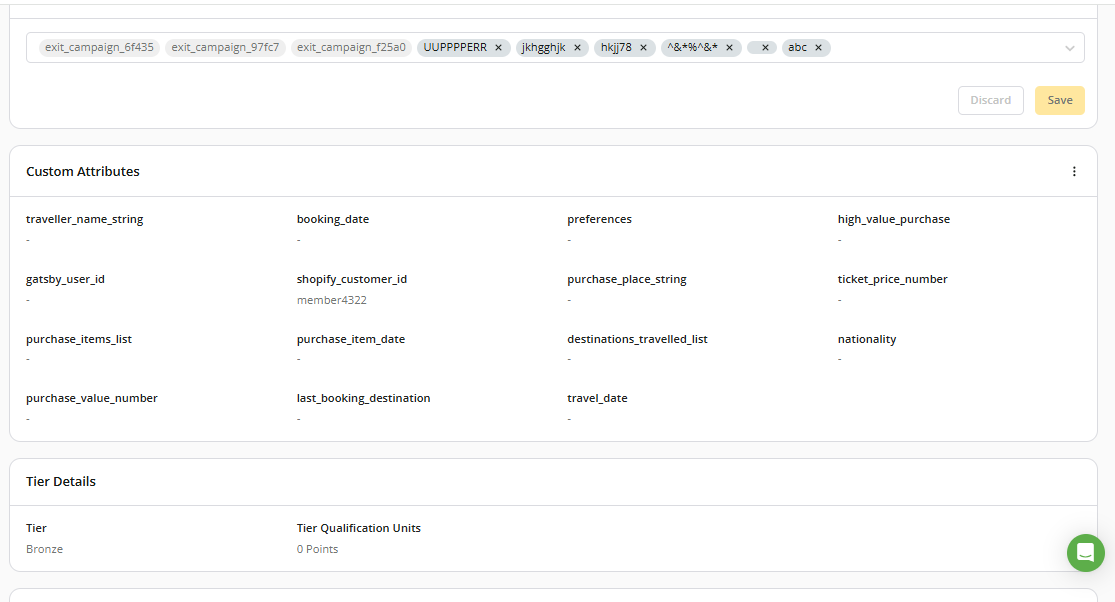
Click on the edit button next to the attribute you wish to assign a value to, then save your changes.
In option 1 and 2, the values of the attributes are already in your system. They just need to be assigned or changed in Zinrelo so they can be used for segmentation and personalization in the program.
Option 3: Values assigned through program rules
There are use cases when the attributes need to be updated based on the activities and rules configured in the loyalty program. A simple example is creating an attribute to track the number of purchases done through the program. A member attribute called “Number of Purchases” can be created, and its value can be increased by 1 each time the member makes a loyalty purchase.
Once the process for updating the member attributes is in place, these attributes can be used to segment the members and send them personalized offers through activity rules, reward rules, or campaigns.
Option 4:Values assigned through batch upload
You can assign values to member attributes using a batch file. To do this, log in to the admin console and navigate to General >> Settings >> Batch Mode.
To update the custom attributes for activities and transactions, download the appropriate CSV file for the corresponding file type, make the necessary updates, and then upload it back into the system.
This document explains the activity rule configuration required to update member attributes based on activities performed.
How do I implement it?
Go to Program Settings >> Activities >> Activity, for which the rules have to be set.

Select the condition and category for which you want to update the attribute. Then add the action, “Update an attribute.”
Let’s take the above example and see how the rules can be configured.
A company wants to track the number of purchases done through the program and run a campaign based on those purchases. For this, a member attribute called “Number of Purchases” can be created, and its value can be increased by 1 each time the member makes a loyalty purchase.
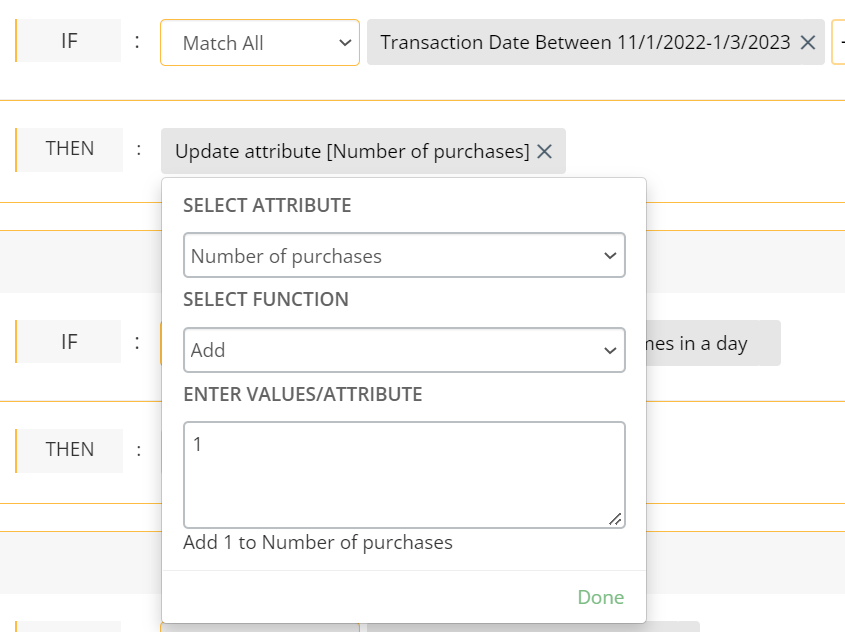
This segment of members can be called out in the campaign, and personalized offers and messages can be provided to the members based on the purchases they made.
Note: The attributes are of 4 data types- string, date, number, and list. The types of custom attributes you can create under each data type are explained here.
Will the attribute update be different for each type of data?
Yes, each data type will have different functions to perform.
Data Type: Number
In the number data type, you have functions to add, subtract, multiply, divide, and assign.
- Add: It will add the entered value to the attribute. Suppose, if you select “transaction attribute.points” which is 2000 then the assigned points will be added to the number attribute, “total miles traveled” which is 500. So, the total will be 2500.
- Subtract: It will subtract the entered value to the attribute. Like in the example above, the points will be subtracted to the total miles traveled.
- Multiply: It will multiply the entered value to the attribute.
- Divide: It will divide the entered value by the attribute.
- Assign: It will assign the value to the attributes directly. No addition, subtraction, multiplication or division will take place.
Use Case:
The travel company, Airbag, wishes to track the number of bookings made by each member. They want to use this information to segment members for their campaigns. To store this information for each member, they can add an attribute labeled “booking count” with 1 after each booking.
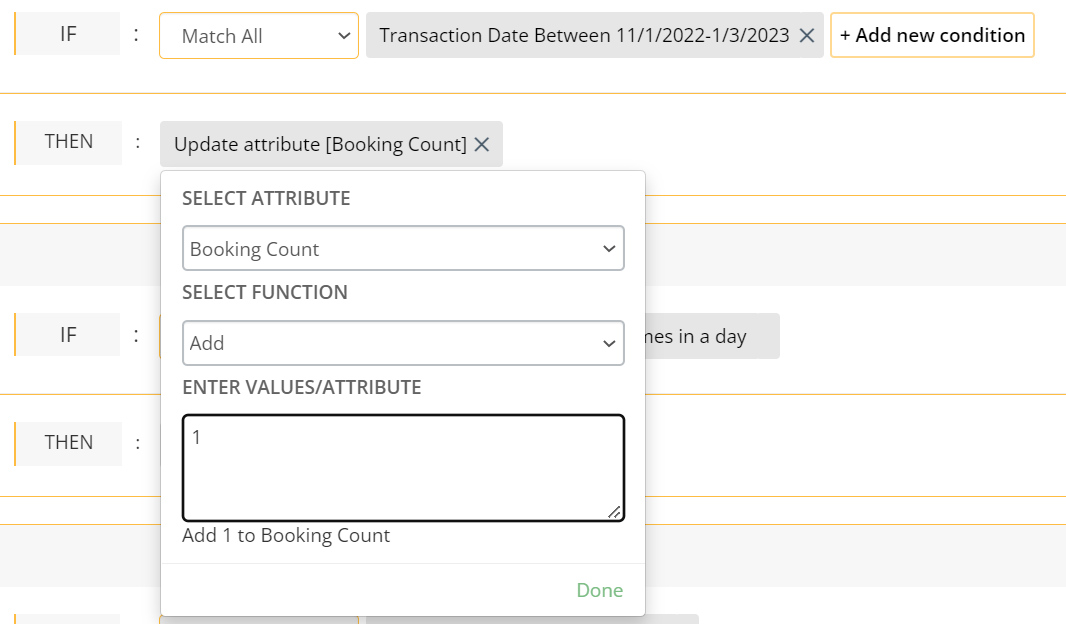
Data Type: Date
In the date data type, you have functions to add days and assign.
- Add days: It will add the number of days to the date attribute.
- Assign: It will assign the value to the attributes directly.
Use Case:
Airbag wishes to run cross-sell promotions for those who booked less than 30 days ago. In this case, the company needs to track the last booking date for each member. Whenever a member makes a booking, the attribute "last booking date" will be assigned the date of that transaction.
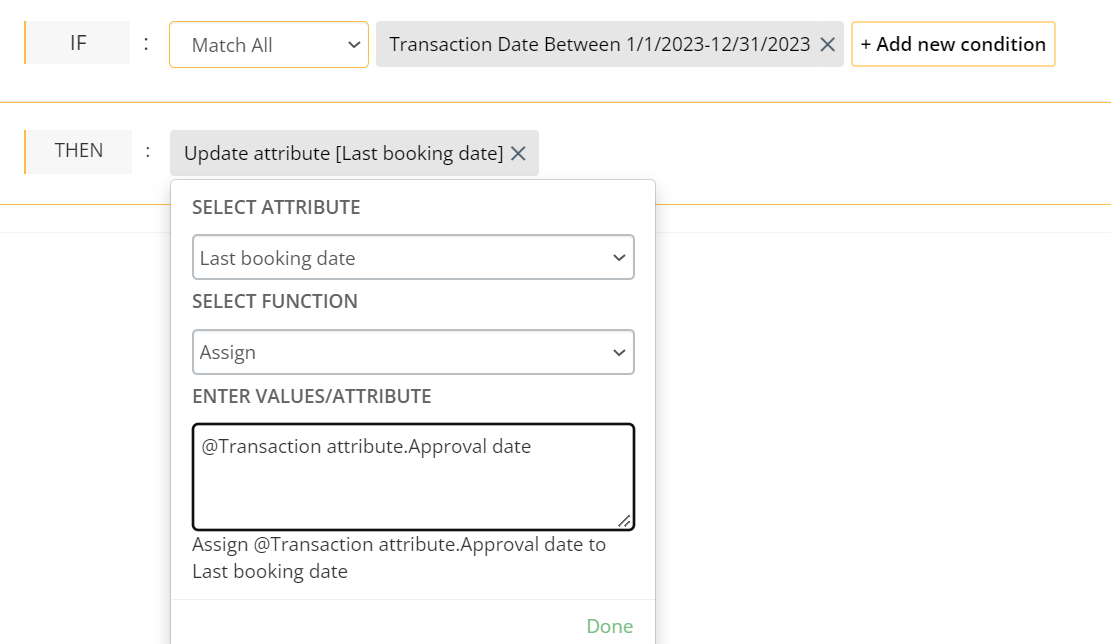
Data Type: List
In the list data type, you have functions to add, remove, assign, and clear.
- Add: It will add the entered value to the attribute, like adding tags.
- Remove: It will remove the entered value from the attribute, like removing tags.
- Assign: It will assign the value to the attributes directly.
- Clear: It will clear all the values assigned to the attributes.
Use Case:
To run effective cross promotions, Airbag wants to store the names of the hotels booked by each member. Each time a member makes a booking, the names of the hotels booked can be added to a list stored in the member's profile.
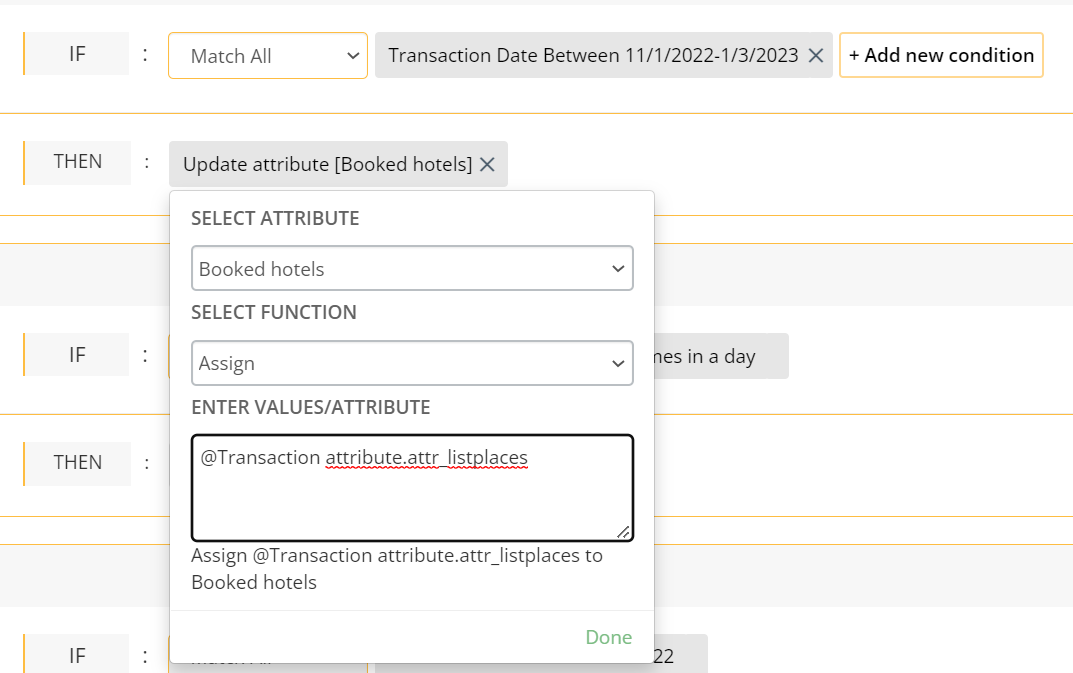
Note:Duplicate values will not be allowed in the list.
Data type: String
In the string data type, you have only the function "assign." Whatever value is assigned to the attribute, which could be tags or transaction attributes like points, revenue, purchase place, and so on, will be saved with the attribute.
Use Case:
Airbag wishes to run a promotion for those members who have last flown to UK. The company wants to offer them 30% off on their next flight ticket. In this case, Airbag will update the member attribute "last flown country" with the transaction attribute 'Destination Country' at the time of booking. Then they can filter out members with the attribute 'Last flown country' = "UK."
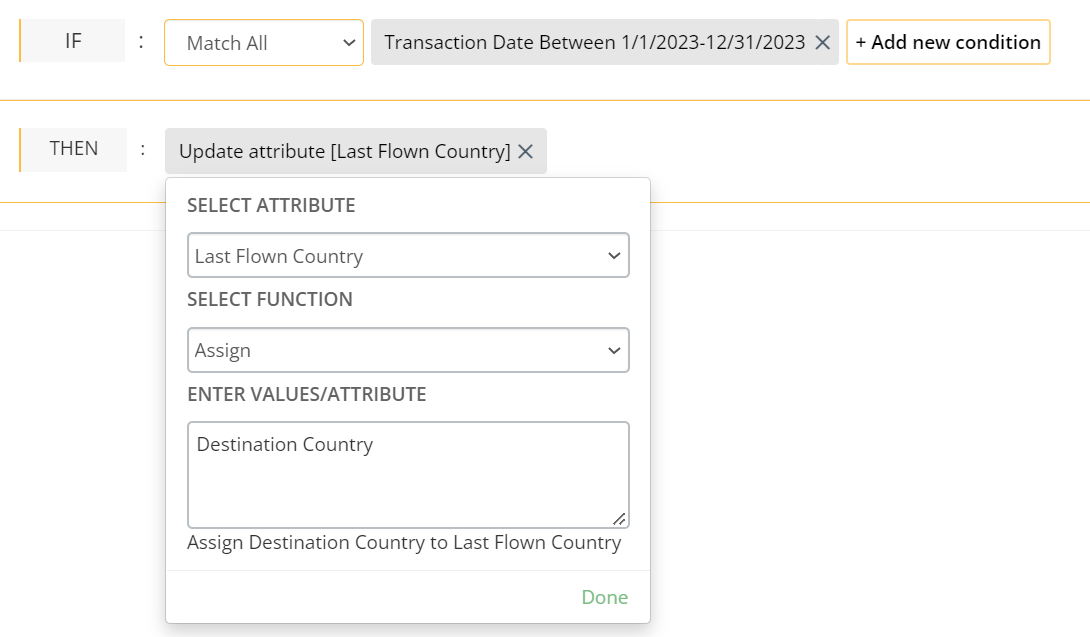
Updated 2 months ago
